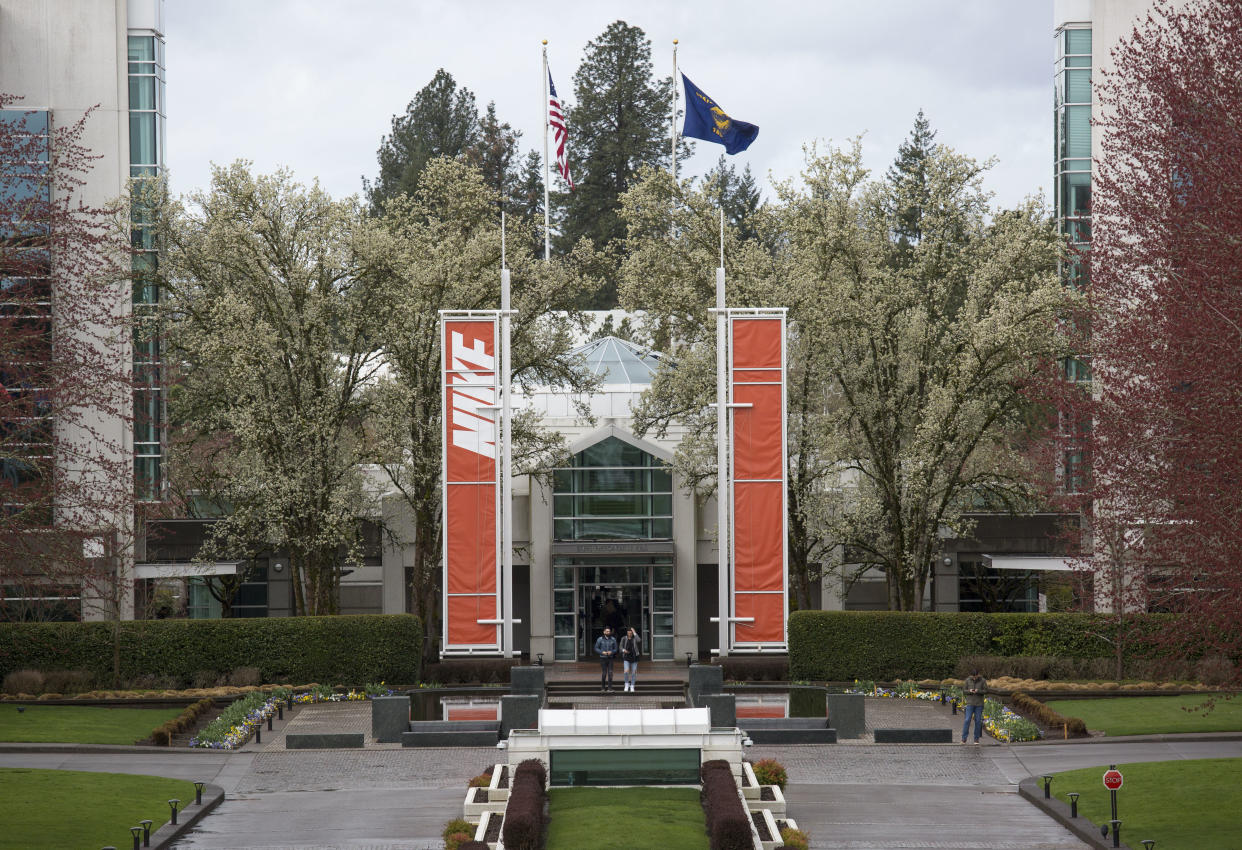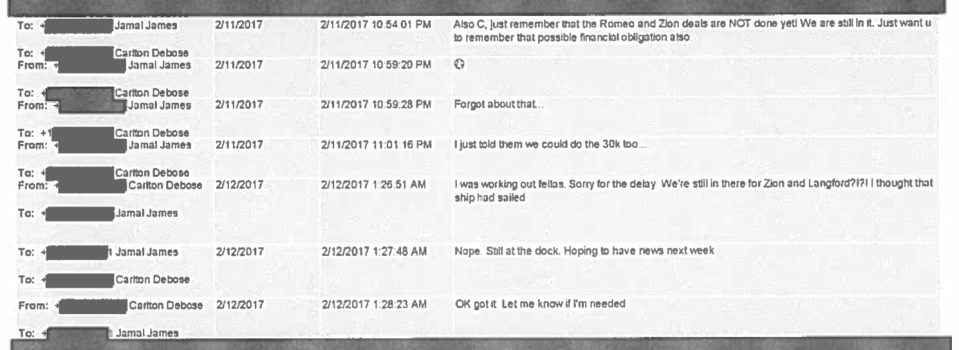Just Ignore It: Nike's response to internal emails that discussed paying high school players

Despite the publication of internal emails that show its executives discussing hundreds of thousands of dollars in payouts to high school basketball players (and plans for many more, even down to the middle school level), Nike has, at least publicly, taken a “Who cares?” attitude.
Potential federal crimes? Backlash from the basketball community? Corruption that runs counter to public statements of a commitment to above-the-table conduct?
So what?
“Nike will not respond to the allegations of an individual facing federal charges of fraud and extortion,” the company has said, repeatedly, in a statement. “Nike will continue its cooperation with the government's investigation into grassroots basketball and the related extortion case.”
That’s all Nike will say and all it has apparently done. No known firings, suspensions or reorganizations. Just a repeated attempt to shift the focus onto Michael Avenatti, the celebrity lawyer who is fighting federal charges that he extorted the company.
Avenatti counters that he was merely aggressively representing a whistleblower. His client was a fired former coach in Nike's Elite Youth Basketball (EYBL) division that knew of payouts and behavior that mirrored what led to convictions of an Adidas executive and consultant in a high-profile 2018 federal trial.
Yet Avenatti’s guilt or innocence, politics or background, is of little to no importance at this point. The 300-some pages of exhibits attached to his motion to dismiss last week paint a clear and damning picture of the reality of the EYBL. He might as well be John Doe, at this point.
It isn’t, after all, the “allegations of an individual facing federal charges of fraud and extortion” that Carlton DeBose, the director of the EYBL, funnels $200,000 a year to select EYBL coaches who are “helping families.”
That was DeBose himself in a 2017 text message exchange.
It isn’t the “allegations of an individual facing federal charges of fraud and extortion” that “38 of 40 teams in the EYBL had to pay a moderate to considerable ransom to families to just play in the EYBL,” or that bidding wars between Nike, Adidas and Under Armour can reach $100,000.
That was DeBose himself in a 2016 email to Nico Harrison, who is merely Nike’s vice president of North American Basketball Operations.
It wasn’t “allegations of an individual facing federal charges of fraud and extortion” that Nike execs discussed money in the recruitment of high schoolers, or had emails that detailed what’s been laid out to one prospect or theorized that top execs are willfully ignorant to “cover their asses.”
That’s all Nike on Nike.


At the very least, Nike is standing behind a system that routinely jeopardizes player’s NCAA eligibility (whether you agree with that or not) and is suspected of using those payments, and the potential blackmail ineligibility provides, to allow Nike to choose the college destination of top recruits.
“We are viewed as having too much influence,” DeBose — not Avenatti — wrote in an email. “The perception and resulting reality is that we dictate where players go to school.”
Yet DeBose, Harrison and the rest remain employed and the EYBL has carried on, business as usual. This despite Nike knowing about these communications and providing them to federal prosecutors long before they became public last week.
The exhibits are full of behavior that looks similar to the what has Adidas’ James Gatto and Merl Code facing federal prison time. Why no one from Nike has been charged also remains unknown.
“These emails raise real questions whether all of the individuals that may have violated federal law have been held accountable,” said Stephen L. Hill, the former United States Attorney for the Western District of Missouri who prosecuted the somewhat similar Myron Piggie case in the early 2000s.
“On these documents’ surface, they raise similar questions that need to be answered if you are committed to holding everyone accountable for this type of conduct,” Hill continued. “Failure to do so raises the questions whether or not you’re committed to fully and completely addressing the situation.”
The feds, much like Nike, haven’t addressed the situation publicly either.
Throughout college basketball there is bafflement how people have kept their jobs. “I don’t get it,” said one Final Four head coach, who, because he is sponsored by Nike, sought anonymity.
Of course, that’s part of the problem, too. Plenty of college coaches have long suspected Nike of being a puppet master, stocking a few preferred schools with top talent in an effort to create corporate-branded powerhouses that can rule March Madness. Same for Adidas and Under Armour.
Yet almost everyone in college athletics is either taking money from Nike, one day wants to work at a school that takes money from Nike or fears the backlash of speaking out.
Money buys silence.
Kansas, after all, famously cried it was a victim of its shoe partner, Adidas, when it was revealed Adidas helped them try to land top prospects. Then it immediately turned around and signed a new, long-term deal with Adidas because it needs that Adidas money and, if it were honest, the help with recruits, too.
If the corruption is everywhere, then it’s nowhere.
As for the NCAA, there’s been little to nothing from president Mark Emmert, who should be screaming from the mountain top over an issue that impacts the competitive sanctity of a major sport.
Instead, he delegated his authority to an “independent commission” led by Condoleezza Rice that proved toothless. And he couldn’t be bothered to attend either of the two trials thus far. Here’s guessing his schedule again will be full when Avenatti heads to court sometime in the late fall or winter.
Maybe that’s Nike’s plan here. Hope the feds have stopped caring and tell everyone else to go pound sand.
How it runs its youth basketball division was spelled out clearly. It hasn’t lobbied to have amateurism rules altered. And it hasn't apparently changed a thing.
It’s difficult to imagine anyone could think it’s good for players, families or the game, yet who is going to do anything about it?
The college coaches? The schools? The NCAA? The FBI? The Southern District of New York?
So far, no one. So far, it’s still business as usual in the business of college basketball.
More from Yahoo Sports:

